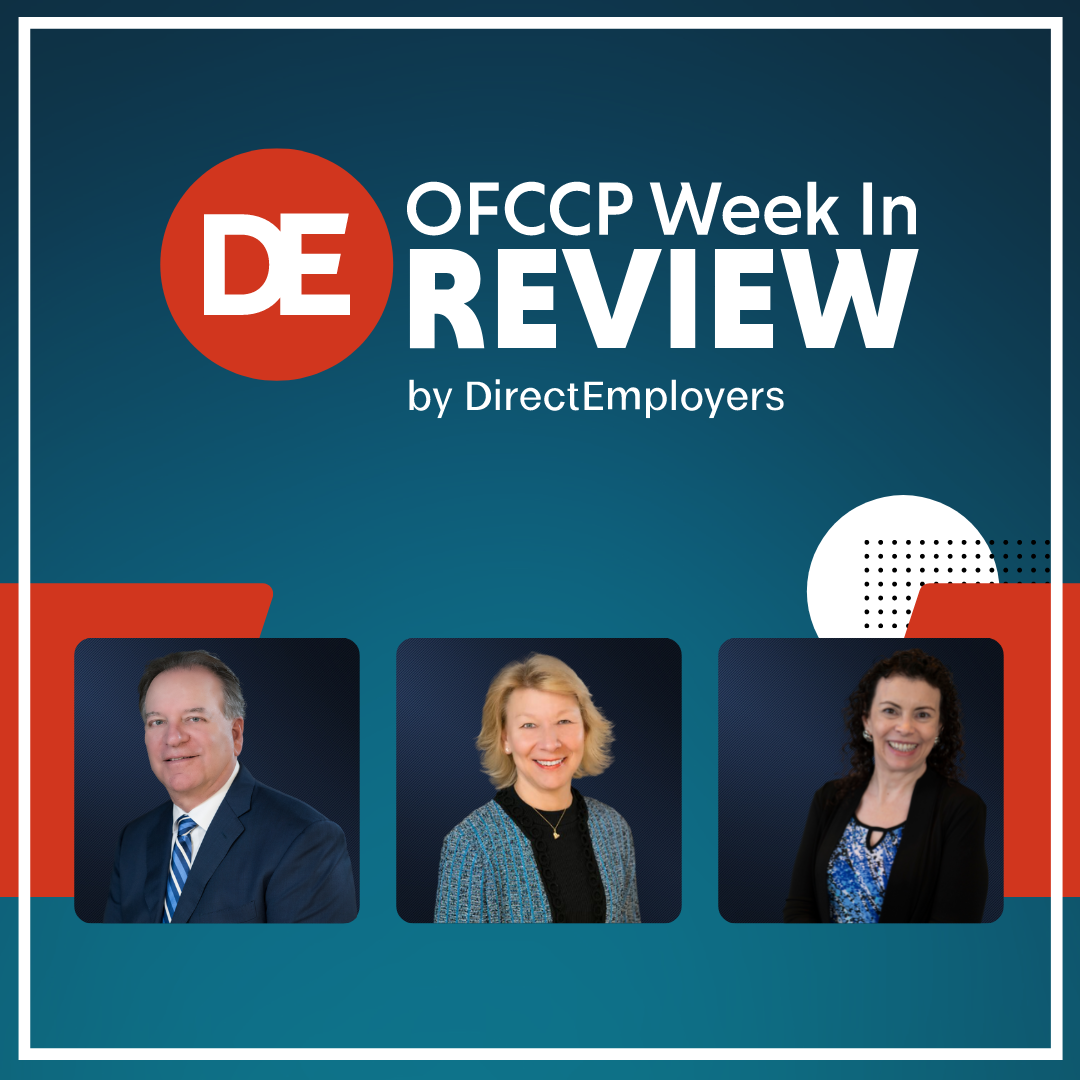
- OMB Is About to Overhaul Federal Data Collections of Race and Ethnicity Information: Federal Contractors Beware of Coming New Data Collection and Reporting Burdens
- New Biden Executive Order Details Plan For Feds To Collect Sexual Orientation, Gender identity, and Sex Characteristics Data: An Old Acronym Now Takes Center Stage: SOGI. Federal Contractors Beware of Coming New Data Collection And Reporting Burdens
- USDOL Wage & Hour Division Published a Proposal to Revise the Existing WD-10 Form for Federal Construction Contractors
- NLRB Majority Holds That Trump-era “Block-Charging” Rule Does Not Prevent NLRB Staff from Issuing Merit-Based Dismissals of Election Petitions – Even Without a Full Evidentiary Hearing
- OMB And GSA Announced a “Technology Modernization Fund”
- USDOL’s Wage & Hour Division Issued New Guidance Limiting Subminimum Wages To Disabled And Young Employees: No Rulemaking, Yet Again.
Wednesday, June 15, 2022: OMB Is About to Overhaul Federal Data Collections of Race and Ethnicity Information: Federal Contractors Beware of Coming New Data Collection and Reporting Burdens

OMB last updated OMB Directive 15 in 1997. Dr. Orvis reported that OMB will use information obtained by the OMB-chartered Interagency Working Group for Research on Race and Ethnicity published in 2017 to guide its update. OMB will also look to the work of the Biden Administration’s Equitable Data Working Group and will also eventually seek input from the public and federal agencies.
Dr. Orvis wrote that the OMB’s review of Directive 15 will include the formation of an interagency technical working group of federal Government career staff who represent programs that collect or use race and ethnicity data. This group will solicit public feedback on its recommended proposal through a notice in the Federal Register. Dr. Orvis also reported that she intends to consider the technical working group’s recommendations and public comments to develop a recommendation to the OMB leadership. Her goal is to complete the revision no later than Summer 2024.
A recent Equitable Data Working Group report recommended the revision of Directive 15
Dr. Orvis is also part of the Biden Administration’s Equitable Data Working Group, which issued a report this past April directing agencies about ways to promote equity in federal data. One of the key recommendations in that report was to “Make Disaggregated Data the Norm while Protecting Privacy.” Discussing that recommendation, the report noted that “OMB is developing updated guidance to promote improved understanding of disaggregation already allowable under the current Statistical Policy Directive No. 15.”
The report noted concern that “people of Middle Eastern and North African heritage and subgroups of Asian American, Native Hawaiian and Pacific Islanders are not represented within the current minimum racial and ethnic categories, leaving them unseen in government statistics and masking important inequities.”
Federal Government contractors will want to take special notice of any new burdens OMB may seek to propose for either data collection or data reporting.
Moreover, the report observed that “changing the race and ethnicity standard is important but not sufficient to generate the disaggregated statistical estimates on federal surveys that are necessary for understanding potential disparities in life experiences and outcomes across demographic groups. Sample sizes in many national statistical surveys would need to be increased to generate estimates for smaller populations – such as individual LGBTQI+ communities and smaller racial and ethnic groups – without jeopardizing the confidentiality of survey respondents. Additionally, because increases in sample size are not a cost-effective way to study the smallest population subgroups, the Working Group recommends support for other alternative avenues as well. For instance, statistical agencies should explore creating multi-year datasets for national surveys that will allow publishing estimates for small populations.”
The report also recommended that the federal Government “catalyze existing federal Government infrastructure to leverage underused data” and “facilitate increased federal-state-local data sharing.”
Wednesday, June 15, 2022: New Biden Executive Order Details Plan For Feds To Collect Sexual Orientation, Gender identity, and Sex Characteristics Data: An Old Acronym Now Takes Center Stage: SOGI. Federal Contractors Beware of Coming New Data Collection And Reporting Burdens
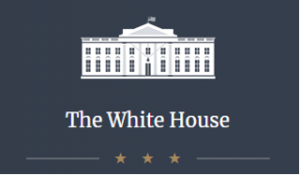
See also, WIR “Federal Government Agencies Implement Equity Action Plans.”
Wednesday, June 15, 2022: USDOL Wage & Hour Division Published a Proposal to Revise the Existing WD-10 Form for Federal Construction Contractors
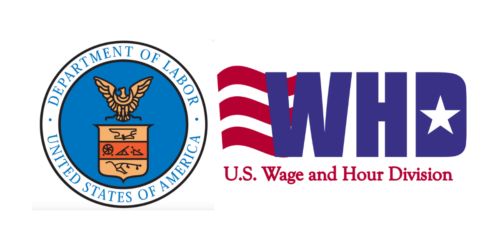
The USDOL Wage and Hour Division proposes to do away with asking respondents to determine a peak week(s) of construction for reported projects, identify the project value, or identify contractors or subcontractors on the project. Additionally, the proposed form uses a “picklist” of labor classifications from which a respondent may choose, rather than requiring the respondent to manually enter the labor classification into an open text field. These proposed changes to the WD-10 form, among others, are designed to increase the ease of participating in a survey and to solicit more usable wage data to issue more comprehensive wage determinations.
The proposed new WD-10A collection instrument would be a companion form to the WD-10 form. It would be a “pre-survey to identify potential respondents that performed construction work within the survey period in the survey area, which will enable the Department to solicit for survey participation.”
Written comments on this proposed new information collection request (ICR) are due on or before August 15, 2022.
Wednesday, June 15, 2022: NLRB Majority Holds That Trump-era “Block-Charging” Rule Does Not Prevent NLRB Staff from Issuing Merit-Based Dismissals of Election Petitions – Even Without a Full Evidentiary Hearing
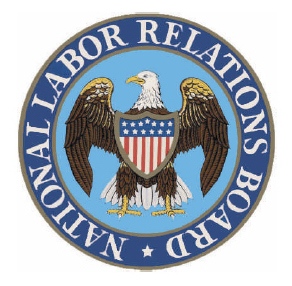
Prior to the policy change, NLRB RDs had the discretion to hold a representation petition in abeyance (to “block” it) when a related unfair labor practice charge was pending. The Board’s “Election Protection Rule” (84 FR 69524), effective May 1, 2020 (85 FR 17500) limited the circumstances in which Regional Directors could block petitions in the face of pending unfair labor practice charges. Instead, such elections must go forward and the votes will either be counted or impounded, depending on the nature of the charge. Prior to the 2020 rule, unions routinely used “blocking charges” to pause elections they were likely to lose or delay decertification bids by workers; therefore, the 2020 rule was a significant change. Still, the NLRB clarified that it will not certify the election results until relevant unfair labor practices charges have been resolved.
The Election Protection Rule, however, did not address an RDs discretion to dismiss election petitions (subject to reinstatement) when the RD (on behalf of the General Counsel) has “found merit in an unfair labor practice charge involving misconduct that would irrevocably taint the petition and any related election,” the Board pointed out in its decision published on Wednesday. The Board majority ruled that RDs may make a finding of merit after conducting only an administrative investigation.
Although they agreed with the majority that RDs retained the authority to dismiss an election petition based on the merits, Board members Marvin E. Kaplan and John F. Ring dissented on the grounds that an evidentiary hearing should be required because a valid causal nexus between the alleged unfair labor practices and employee disaffection could not be found absent a hearing.
The majority’s ruling is significant because it means that RDs now have the discretion to stop elections (both seeking to certify and decertify) unions without the RD having to air his/her proof in an evidentiary ruling.
Thursday, June 16, 2022: OMB And GSA Announced A “Technology Modernization Fund”
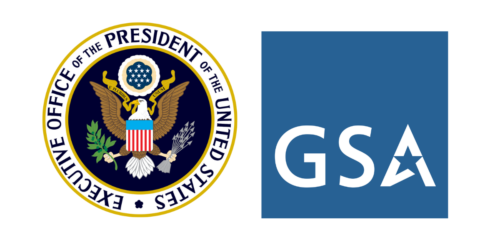
The $100 million comes from the $1 billion American Rescue Plan (ARP) which was designed to help secure and modernize Government technology, the announcement explained.
The TMF Board will prioritize investing in projects that span across agencies and will cut down on “bureaucratic barriers.” In addition, the Board will also prioritize projects aimed at improving a wide range of essential federal Government capabilities and systems.
“Projects that are selected will be supported by customer research and data, cut across agencies and systems, address immediate security gaps, and improve the public’s ability to access and manage Government services,” the announcement states. Technology teams and systems that “are capable of rapidly designing, prototyping, and deploying modern digital tools and services based on human-centered design” will be deployed to the agencies proposing projects. The Board will also mandate that projects “have measurable goals to ensure TMF investments are addressing real customer pain points and gaps in accessibility and equity.”
But wait, there is more – DOL is requesting public feedback on its data strategy
In yet another data-related development, the USDOL published on Wednesday a Federal Register notice (87 FR 36151) seeking public input on its data strategy. Written comments are due by December 12, 2022.
The Department requested comments on the specific characteristics of data and supporting materials, including:
“1. Data content and format;
2. Data documentation, including metadata content, codebooks, and data dictionaries;
3. Data formats specific to certain analysis patterns ( e.g., spatial analysis, machine learning, and program evaluation) including tagging, geocoding, and data encoding that reduce burdens and increase efficiency;
4. Data quality issues that diminish the benefit and utility of Departmental data and limit transparency and analyses; and
5. Challenges with data comparability including linking across program data, establishing common identifiers across data sets, and merging Departmental data with other Federal and non-Federal data sources.”
Also, USDOL requested feedback on:
“1. Identifying data sets that are currently useful and merit prioritization in forthcoming open data efforts;
2. Identifying data sets that are neither public nor available through restricted-use access programs that could provide value to the Department’s stakeholders if made available;
3. The relative advantages and disadvantages of various machine-readable formats including JavaScript Object Notation (JSON), Extensible Markup Language (XML), and ASCII text files with or without comma-separated values (CSV) files;
4. The relative advantages and disadvantages of providing open data through DAAS vis-a-vis complexity, efficiency, convenience, automation, and user-friendliness; [and]
5. Specific data sets and methodologies that would be useful in achieving the goals of President Biden’s Executive Orders on Equity from January 2021 and on Customer Experience from November 2021; and relevant data and metadata standards that enhance interoperability, promote transparency, aid discovery, provide understanding, and facilitate integrating data from multiple sources.”
Thursday, June 16, 2022: USDOL’s Wage & Hour Division Issued New Guidance Limiting Subminimum Wages To Disabled And Young Employees: No Rulemaking, Yet Again.

BACKGROUND: Section 511 of the Rehabilitation Act applies to certified employers otherwise authorized to pay subminimum wages to workers with disabilities under specific requirements of the Fair Labor Standards Act (FLSA). It requires employers with a certificate issued by USDOL’s Wage and Hour Division (WHD) under Section 14(c) of the FLSA to ensure that workers have received career counseling and information and referral services prior to and throughout the duration of employment at a subminimum wage. If an employer fails to comply with these requirements, it is required to pay the affected workers the full federal minimum wage to legally continue their employment.
Moreover, Congress amended Section 14(c) in 2015 to prohibit an employer holding a Section 14(c) certificate from paying a youth (age 24 or younger) with a disability hired after July 22, 2016, less than the Federal minimum wage unless it obtains, verifies, and maintains copies of documentation that the youth received and completed all the Section 511 services prior to being paid a subminimum wage.
Both employers and designated state units (DSUs) have obligations under Section 511. The DSU is the state agency, bureau, division, or other organizational unit that is primarily concerned with the vocational rehabilitation (VR) of individuals with disabilities in each state. Some states have more than one VR agency with some agencies designed to serve the needs of individuals with specific types of disabilities, the guidance points out. A list of all state VR agencies is available at: https://rsa.ed.gov/about/states. The DSU is required to provide documentation showing the completion of pre-subminimum wage services to the individual who received the services. While it is the employer’s responsibility to review, verify, and maintain copies of the documentation. In circumstances where the DSU is delayed in providing the required services, “employers are strongly encouraged to document their contact(s) with the DSU in attempting to facilitate [these] services occurring at the appropriate intervals; however, the DSU’s failure to provide services does not excuse the employer’s failure to comply with the requirements of the law,” the guidance explains.
Along with its announcement of the new guidance, the WHD reported that the USDOL Solicitor’s Office filed suit in the U.S. District Court for the District of Montana, Billings Division, alleging the owner and operator of a Columbus, Montana, residential and working ranch facility for individuals with intellectual and developmental disabilities violated the requirements of Section 511. The Complaint alleges that this employer falsely stated that the required counseling and referrals had been provided to workers paid subminimum wages, and that it informed these workers of available training opportunities, when it had not in fact done so. WHD investigators determined the facility, known as Special K Ranch, paid 35 employees below federal minimum wage during and after the investigation period. Special K paid the workers as little as $1.17 per hour in violation of the law, the Complaint alleges.
THIS COLUMN IS MEANT TO ASSIST IN A GENERAL UNDERSTANDING OF THE CURRENT LAW AND PRACTICE RELATING TO OFCCP. IT IS NOT TO BE REGARDED AS LEGAL ADVICE. COMPANIES OR INDIVIDUALS WITH PARTICULAR QUESTIONS SHOULD SEEK ADVICE OF COUNSEL.
SUBSCRIBE.
Compliance Alerts
Compliance Tips
Week In Review (WIR)
Subscribe to receive alerts, news and updates on all things related to OFCCP compliance as it applies to federal contractors.
OFCCP Compliance Text Alerts
Get OFCCP compliance alerts on your cell phone. Text the word compliance to 55678 and confirm your subscription. Provider message and data rates may apply.
